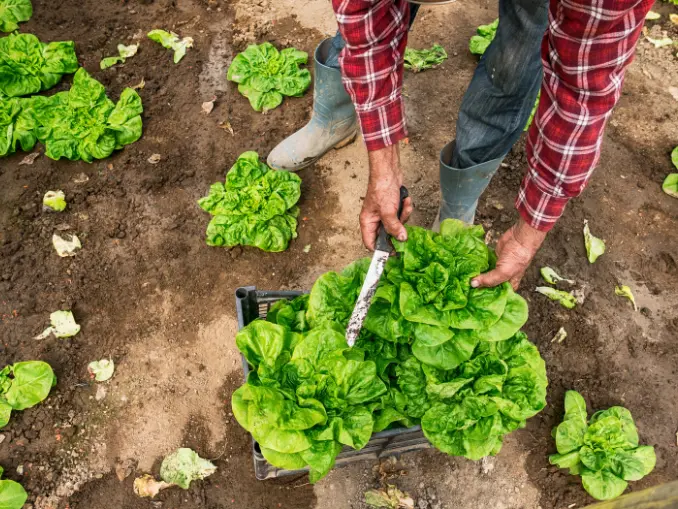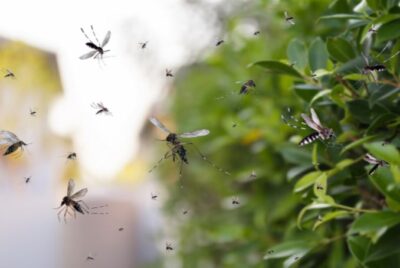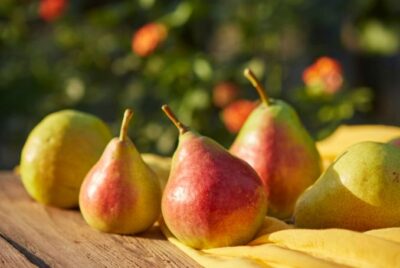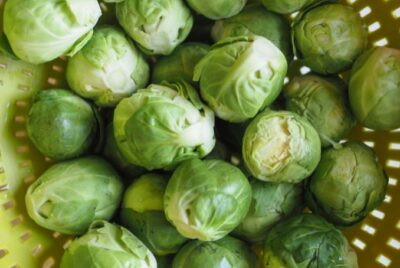Can Chickens Eat Lettuce? A Complete Nutritional Guide for Your Flock

Raising chickens has become a rewarding endeavor for many, whether it’s for fresh eggs, meat, or simply the joy of keeping these engaging birds. As with any pet or livestock, understanding their dietary needs is crucial for their health and well-being. A common question among poultry enthusiasts is whether chickens can eat lettuce. So, this article provides a comprehensive nutritional guide to feeding lettuce to your flock.
The Short Answer: Yes, Chickens Can Eat Lettuce
Lettuce is a safe and generally healthy option for chickens, offering hydration and nutrients beneficial to their diet. However, like all things, it should be fed in moderation and as part of a balanced diet.
Can Your Chickens Safely Eat All Types of Lettuce?
Chickens are natural foragers. They love to peck and scratch at the ground, searching for tasty treats. When it comes to leafy greens, chickens are no different. They love to eat lettuce. But not all lettuce is created equal.
While most types of lettuce are safe and beneficial for your chickens, some types have more nutritional value than others. Here are some types of lettuce that chickens enjoy:
- Romaine lettuce
- Butterhead lettuce
- Red leaf lettuce
- Green leaf lettuce
These types of lettuce are packed with vitamins and minerals that can help keep your chickens healthy. Just make sure to wash the lettuce thoroughly before feeding it to your chickens.
So, let’s break it down and find out which types of lettuce are the best for our chickens.
The Iceberg Lettuce
Iceberg lettuce: it’s the go-to choice for many salads and sandwiches. But when it comes to our chickens, iceberg lettuce doesn’t quite hit the mark.
While it’s not harmful, its nutritional value is relatively low. It is one of the least nutritious types of lettuce, consisting mostly of water with minimal vitamin content. But don’t rule it out entirely. During hot summer months, iceberg lettuce can provide a hydrating treat for chickens.
However, iceberg lettuce should not be a staple in your chicken’s diet. It’s low in essential fats and proteins, so while it can be a hydrating treat, it should not dominate a chicken’s diet.
Think of it as the occasional scoop of ice cream on a hot summer day, a treat to enjoy, but not to rely on for nutrition.
The Romaine Lettuce
Romaine lettuce, on the other hand, is a superstar when it comes to nutrition. This leafy green is safe for chickens to eat and is a more nutritious option than iceberg lettuce.
In fact, chickens eat romaine lettuce to obtain essential nutrients like potassium, calcium, and phosphorus, which play a vital role in maintaining your chicken’s health.
Moreover, romaine lettuce is packed with vitamins A and C, as well as a good amount of vitamin K. These vitamins support vital health aspects for chickens such as vision, immune system, and bone health.
The fiber content in romaine lettuce aids in the digestive health of chickens, while calcium and potassium contribute to their overall well-being. So, next time you’re feeding your chickens, consider romaine lettuce as a top choice.
The Red Leaf Lettuce
Red leaf lettuce is another excellent option for your flock. It’s considered safe and nutritious for chickens to consume. Like its cousin, romaine lettuce, red leaf lettuce is full of essential nutrients that chickens need for optimal health.
The beautiful, reddish leaves of this type of lettuce not only add a pop of color to your chicken’s diet but also provide a good source of vitamins.
Chickens can eat red leaf lettuce as it is a great option for their diet. Full of flavor and nutrients, it’s a win-win choice for your chickens and their taste buds!
What Constitutes a Healthy Chicken Diet?
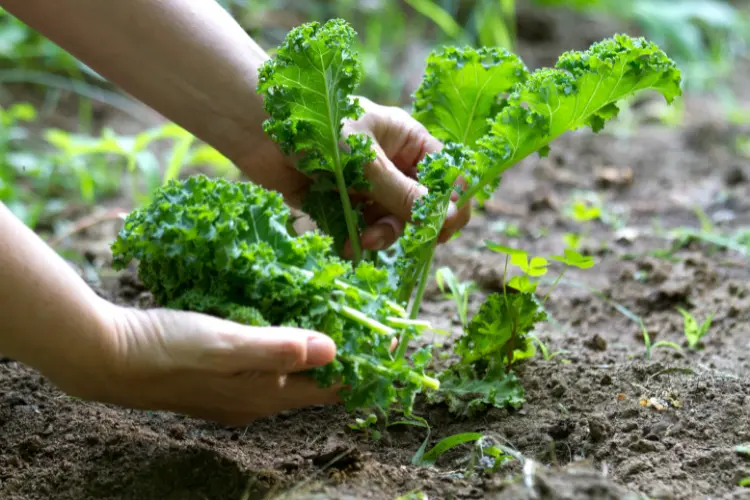
Feeding your chickens isn’t just about letting them peck at what they find in the yard. While they love to forage, a healthy chicken diet requires more than just random grains and greens.
A balanced diet is crucial for their health and egg production. It typically includes a complete feed formulated to meet all their nutritional needs. So, what do chickens eat, and where does lettuce fit in?
Core Components of Chicken Feed
When we talk about a ‘complete feed’, we’re referring to a diet that caters to all the nutritional needs of the chickens. Chickens require at least 38 nutrients in their diets in appropriate concentrations and balance, including macrominerals and trace minerals.
So, while a cup of shredded romaine lettuce provides some protein, it’s only a small contribution to the daily protein requirement of a chicken.
The core components of chicken feed include:
- Essential amino acids
- Vitamins (fat-soluble: A, D, E, and K; water-soluble: B vitamins and choline)
- Minerals (macrominerals: calcium, phosphorus, sodium, potassium, manganese, chlorine, and sulfur; microminerals: copper, iodine, iron, manganese, selenium, and zinc)
Chickens are unable to synthesize 9 essential amino acids, which must be included in their diet. Vitamins must be supplied frequently as they are not stored in tissues, except for cobalamin.
Macrominerals are required in larger amounts, while microminerals are needed in smaller quantities. Additives like non-nutrient antioxidants and exogenous enzymes are also added to chicken diets to enhance nutrient availability and reduce antinutritional effects.
Treats Versus Necessities
While treats like lettuce can be a fun addition to your chicken’s diet, they should only make up a small portion of their daily intake.
In fact, chicken treats should not exceed 10% of a chicken’s total calorie intake. Let’s think about this in terms of a balanced human diet. We love our sweets and snacks, but they aren’t the main course. The same goes for our feathered friends.
Feeding chickens excessive table scraps and greens like lettuce can negatively impact egg production, underscoring the need for moderation. Healthy treats for chickens should be natural and wholesome, complementing the complete feed, rather than displacing it.
I advise feeding your chickens their complete feed first thing in the morning before they forage, ensuring they prioritize their essential dietary needs over treats.
Scratch Grains and Other Supplements
Scratch grains and other supplements can also be included in a chicken’s diet. These are a blend of various seeds and grains that chickens love to peck at. But they should only comprise 5-10% of a chicken’s overall diet to prevent any nutritional imbalances.
Supplements like oyster shell or limestone can last several months for a typical flock, demonstrating their cost-effectiveness and role in promoting shell strength and overall health.
Vitamins and most trace minerals have high safety margins in chicken feed, making it unlikely for them to cause toxicity, while macrominerals, amino acids, and energy have more carefully controlled margins.
Read also: Ant-Snacking Hens: Do Chickens Eat Ants and Should They?
Preparing Lettuce for Your Feathered Friends
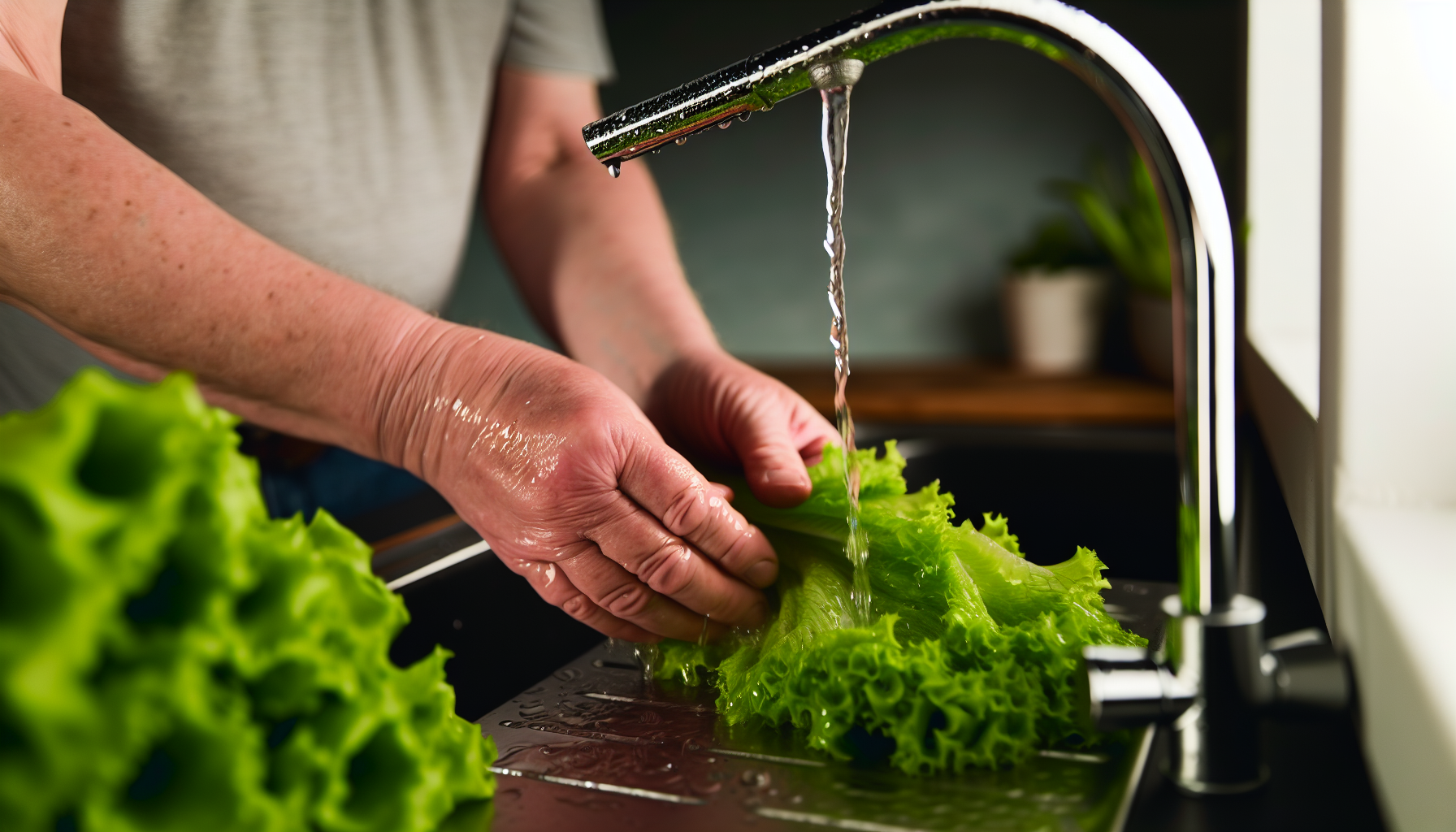
Just like preparing our own meals, preparing lettuce for chickens requires some care. After all, we want to ensure that our feathered friends are getting the best quality food.
Washing Lettuce Prior to Feeding
First things first, we need to wash the lettuce thoroughly before feeding it to our chickens. Pesticide contamination and residues on grocery-bought lettuce can pose health risks to chickens. It’s crucial to rinse the lettuce under running water to remove any potential pesticides, contaminants, or dirt.
For a more thorough cleaning, you can soak the lettuce in a mixture of vinegar and water before rinsing. This will help in removing pesticides and bacteria effectively.
If possible, using organic lettuce varieties can help mitigate the risk of pesticide exposure. After all, we want to keep our chickens safe and healthy!
Serving Sizes and Frequency
Once the raw lettuce is washed and ready, it’s time to think about serving sizes and frequency. You may wonder how much lettuce should be offered to chickens in moderation and not as a majority component but as a fraction of healthy supplemental foods to avoid digestive issues.
Chickens can eat lettuce every day, but it should not constitute more than 10% of their overall diet to prevent any nutritional imbalance. Remember, excessive consumption of lettuce, particularly types like iceberg with high water content, can cause loose droppings.
To ensure chickens receive a range of vitamins and minerals, lettuce can be mixed with other dietary ingredients, promoting a varied and balanced diet. In fact, many people wonder if chickens eat lettuce, and the answer is yes, but moderation is key.
Creative Ways to Serve Lettuce
Feeding chickens doesn’t have to be a mundane task. In fact, you can turn it into a fun activity that encourages your chickens’ natural foraging instincts. Creating a stimulating environment by presenting lettuce in novel ways can make feeding time an exciting experience for your chickens.
You can hang a head of lettuce in the coop, making feeding time fun and getting chickens to jump and exercise while they peck at the greens. Incorporating lettuce into a dig box setup allows chickens to scratch and search for food, mimicking their natural foraging behavior. It’s all about mixing things up and making mealtime interesting for your feathery friends!
Read also: Can Chickens Eat Dandelions? Exploring the Benefits of Nature’s Chicken Feed
Foods to Avoid When Feeding Your Chickens
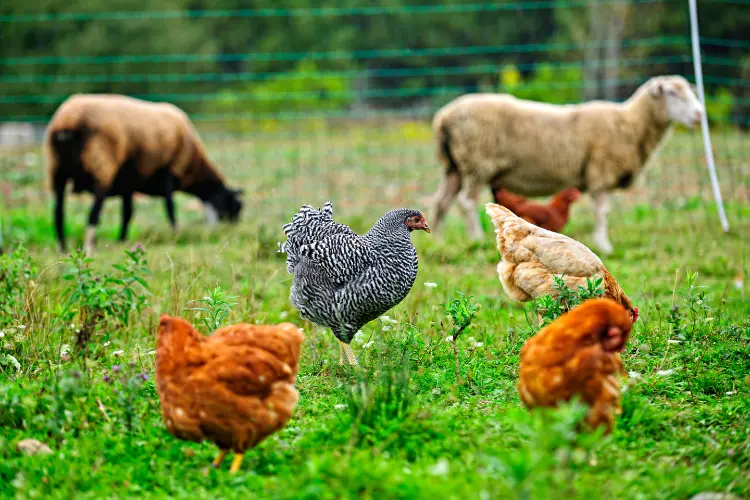
While we’ve discussed the benefits of certain foods, it’s equally important to know which foods to avoid when feeding your chickens. Certain foods contain toxins that can pose serious health risks to chickens. Let’s delve into some of these harmful foods and understand why they should be avoided.
The Nightshade Family’s Hidden Dangers
The nightshade family of plants may seem innocent, but they hide a dangerous secret. These plants contain glycoalkaloids, which are toxic compounds that can harm chickens. Green potatoes, for instance, should not be fed to chickens due to their solanine and chaconine content.
Ingesting nightshade vegetables like green potatoes can lead to symptoms such as diarrhea and vomiting in chickens. While these vegetables may seem harmless to humans, they can pose serious health risks to our feathered friends.
Onions and Garlic: A Risk to Red Blood Cells
Next on the list are onions and garlic. These common kitchen ingredients contain compounds that can lead to the destruction of red blood cells, causing anemia in chickens.
This might be surprising, as we often use these ingredients in our own diets without any harm. However, what’s safe for us might not be safe for our chickens. It’s important to remember that their digestive systems are different from ours, and certain foods can have adverse effects on them. Some foods that are toxic to chickens include:
- Avocado
- Chocolate
- Onions
- Garlic
- Raw potatoes
- Rhubarb leaves
It’s important to avoid feeding these foods to your chickens to keep them healthy and safe.
The Sweet Potato Exception
Now, you might be wondering about sweet potatoes. After all, they’re in the same family as regular potatoes, right? Well, not quite. Unlike green potatoes, sweet potatoes are not members of the nightshade family.
This means that sweet potatoes do not contain toxic glycoalkaloids, which are found in nightshade vegetables like green potatoes. Given their safety profile and lack of harmful substances, sweet potatoes can be considered a healthy treat for chickens. So, feel free to treat your chickens to some sweet potatoes every now and then!
The Impact of Lettuce on Egg Quality and Flavor
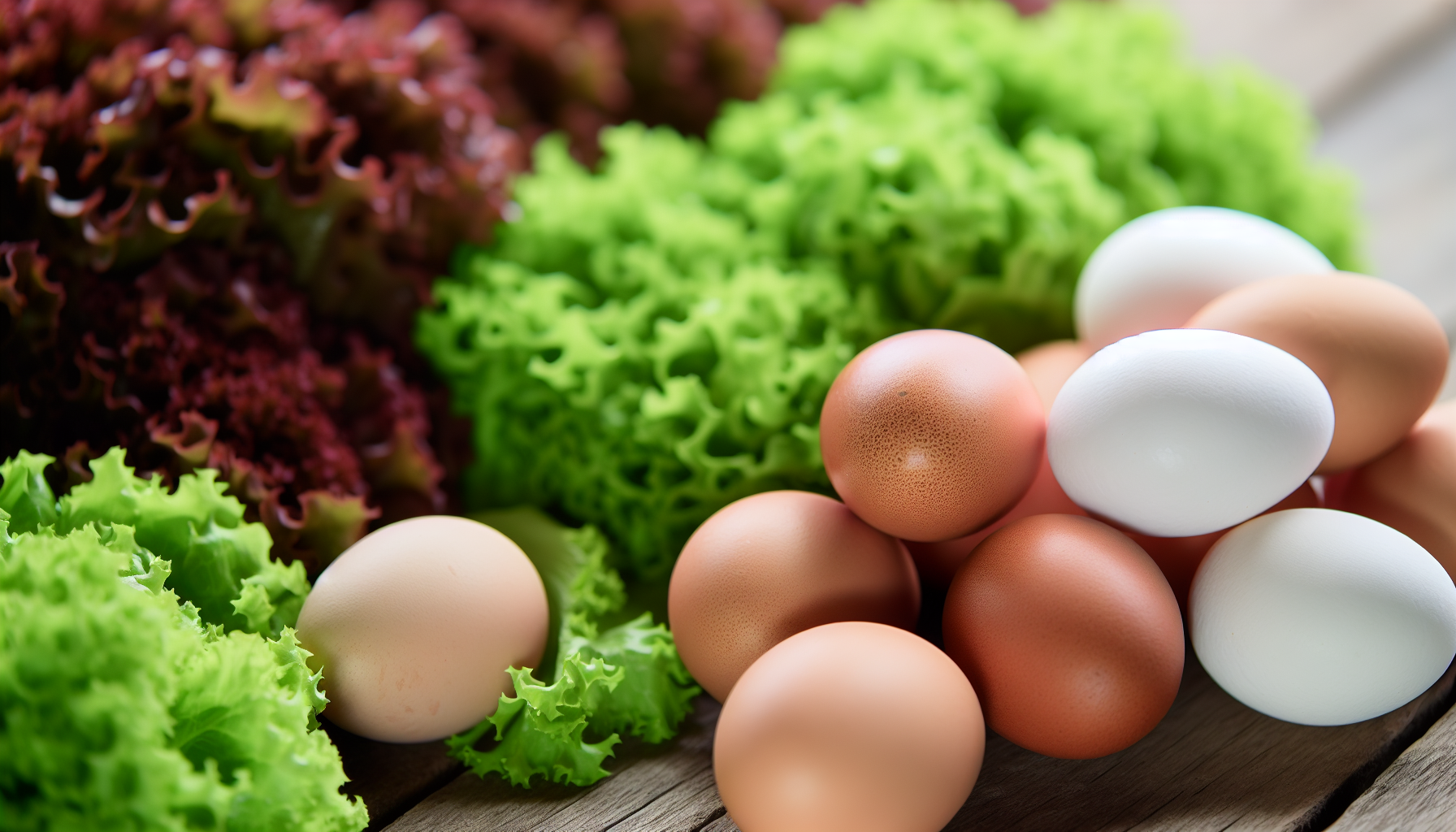
So, we’ve covered the impact of feeding lettuce to chickens on their health, but what about their eggs? After all, one of the main reasons we raise chickens is for their delicious and nutritious eggs.
Vitamin-Rich Greens and Egg Nutrition
Vitamin-rich greens like lettuce can actually enhance the nutritional quality of chicken eggs, making them a part of healthy food. For instance, red leaf lettuce, which is high in vitamin A, can enhance the nutritional quality of chicken eggs.
The antioxidants present in red leaf lettuce, especially in the reddish leaves, can support chicken health and are beneficial components in their diet.
Inclusion of these vitamin-rich greens in a chicken’s diet can lead to increased levels of specific vitamins and antioxidants within the eggs they produce. So, feeding your chickens lettuce not only keeps them healthy but also boosts the nutritional content of their eggs.
Can Lettuce Change the Taste of Eggs?
Now, what about the flavor of the eggs? Does feeding lettuce to chickens change the taste of their eggs? According to the studies, there’s no specific evidence to suggest that lettuce causes a change in the flavor of chicken eggs.
However, the flavor of chicken eggs can be altered by the hen’s diet, particularly when the diet includes foods with strong flavors or aromas.
But while it may not change the flavor, feeding chickens dark leafy greens like lettuce can lead to darker, richer egg yolks. This is more of a visual effect and does not specifically refer to the taste of the eggs.
So, while your chickens enjoy their lettuce, you can enjoy the beautiful, rich yolks of their eggs.
Read also: Can Chickens Eat Mushrooms? Tips for Healthy Poultry Feeding
Addressing Common Concerns and Myths About Chickens Eating Lettuce
As with any topic, there are always concerns and misconceptions that need to be addressed. When it comes to chickens eating lettuce, there are a few myths that need to be debunked. One common misconception is that all leafy greens are harmful for chickens. This is not true. Most varieties of lettuce are safe and contribute to a healthy diet for chickens.
The key is to avoid specific toxic plants. Nightshade vegetables, for instance, contain harmful toxins and should be avoided. But when it comes to lettuce, most varieties are perfectly fine for your chickens to enjoy.
So, next time you see your chicken pecking at a piece of lettuce, you can rest easy knowing it’s a safe and healthy treat!
Final Thoughts
Lettuce can be a great addition to your chicken’s diet. Whether it’s iceberg, romaine, or red leaf lettuce, your chickens can safely peck at these greens. Just remember to wash the lettuce thoroughly and serve in moderation.
While lettuce does provide certain nutritional benefits, it shouldn’t replace a balanced diet. A healthy chicken diet should primarily consist of complete feed, with treats like lettuce making up a small portion.
With this guide, you’re now equipped with the knowledge to feed your chickens lettuce safely and responsibly. Here’s to happy, healthy chickens and delicious, nutritious eggs.


